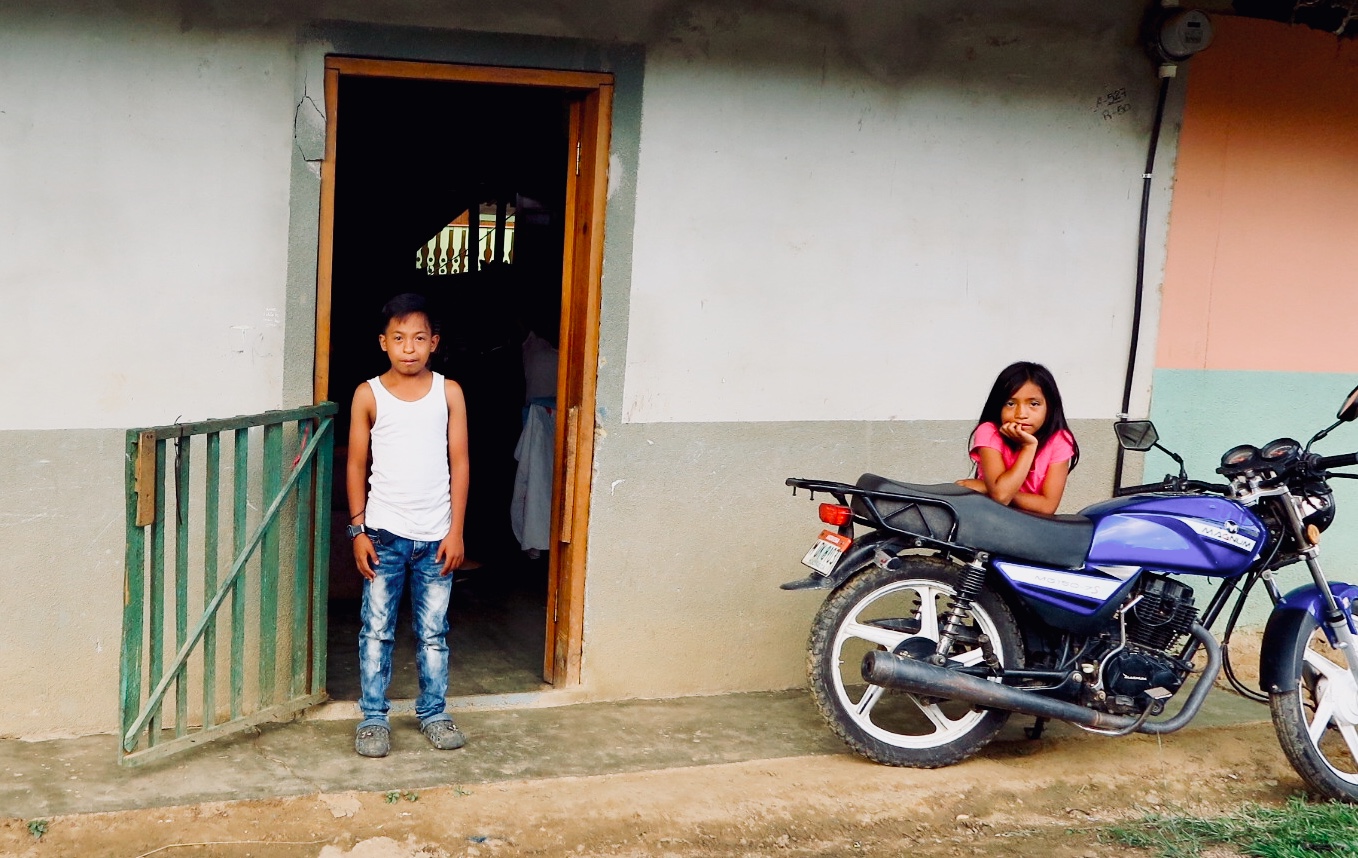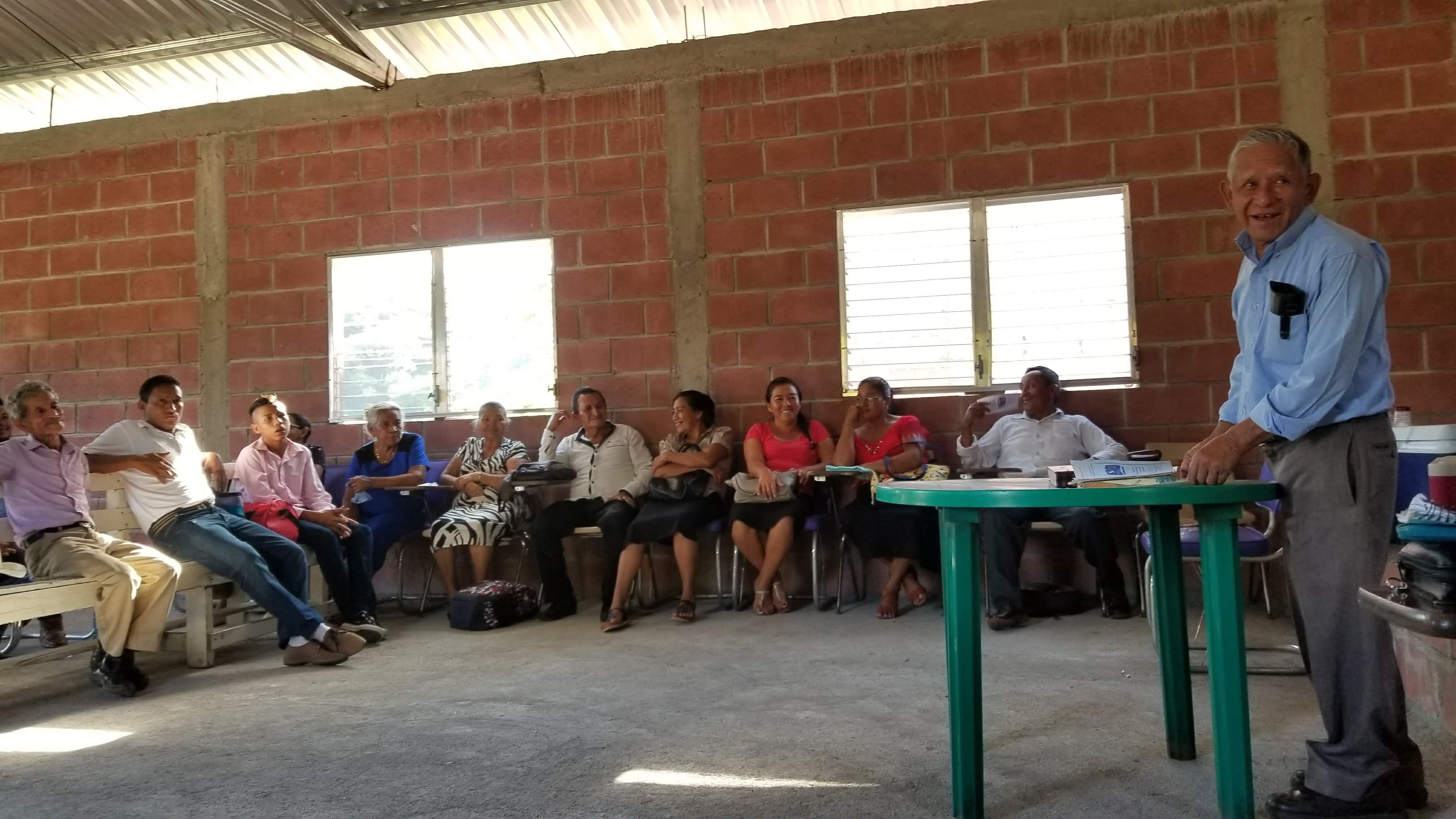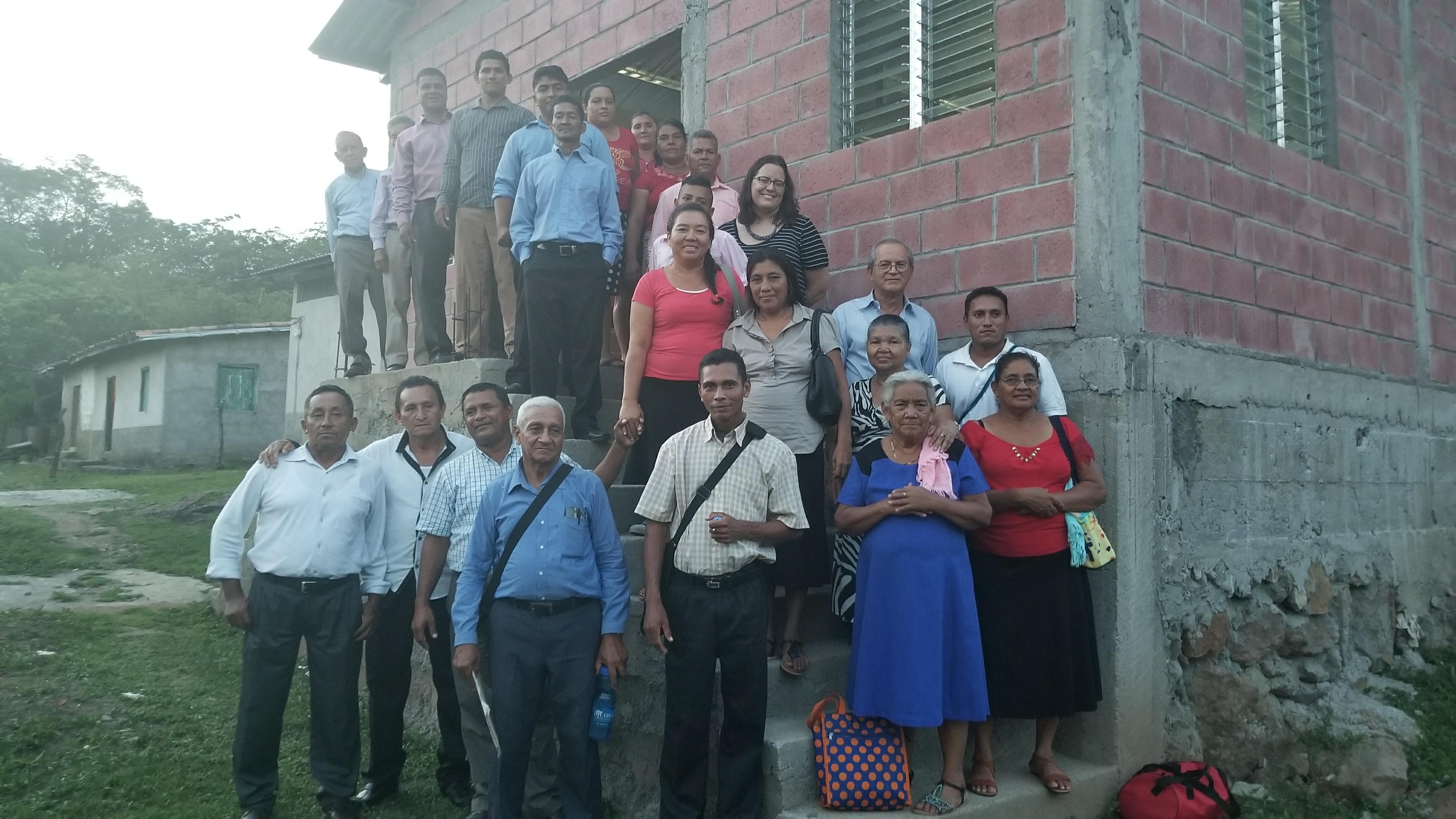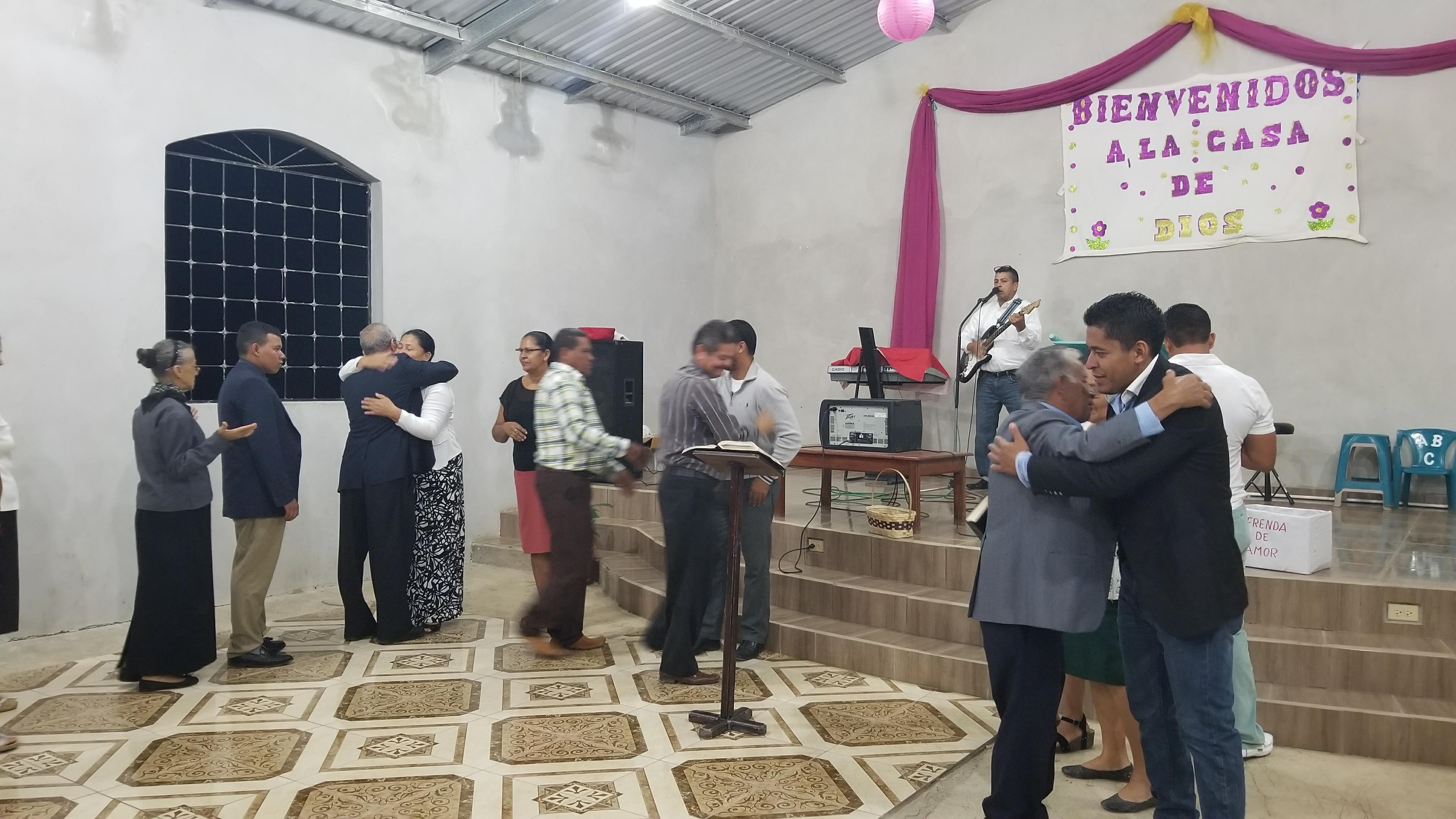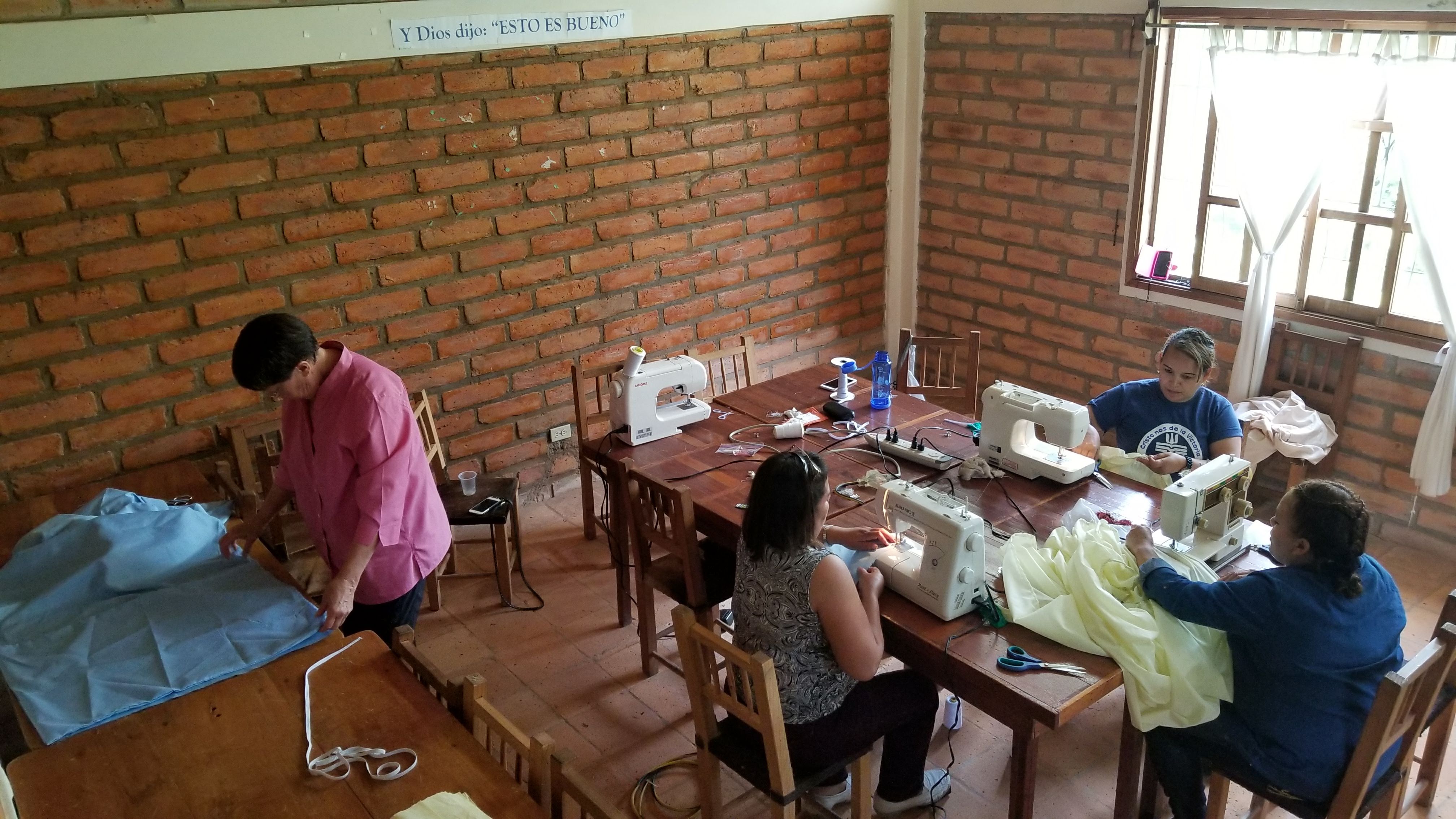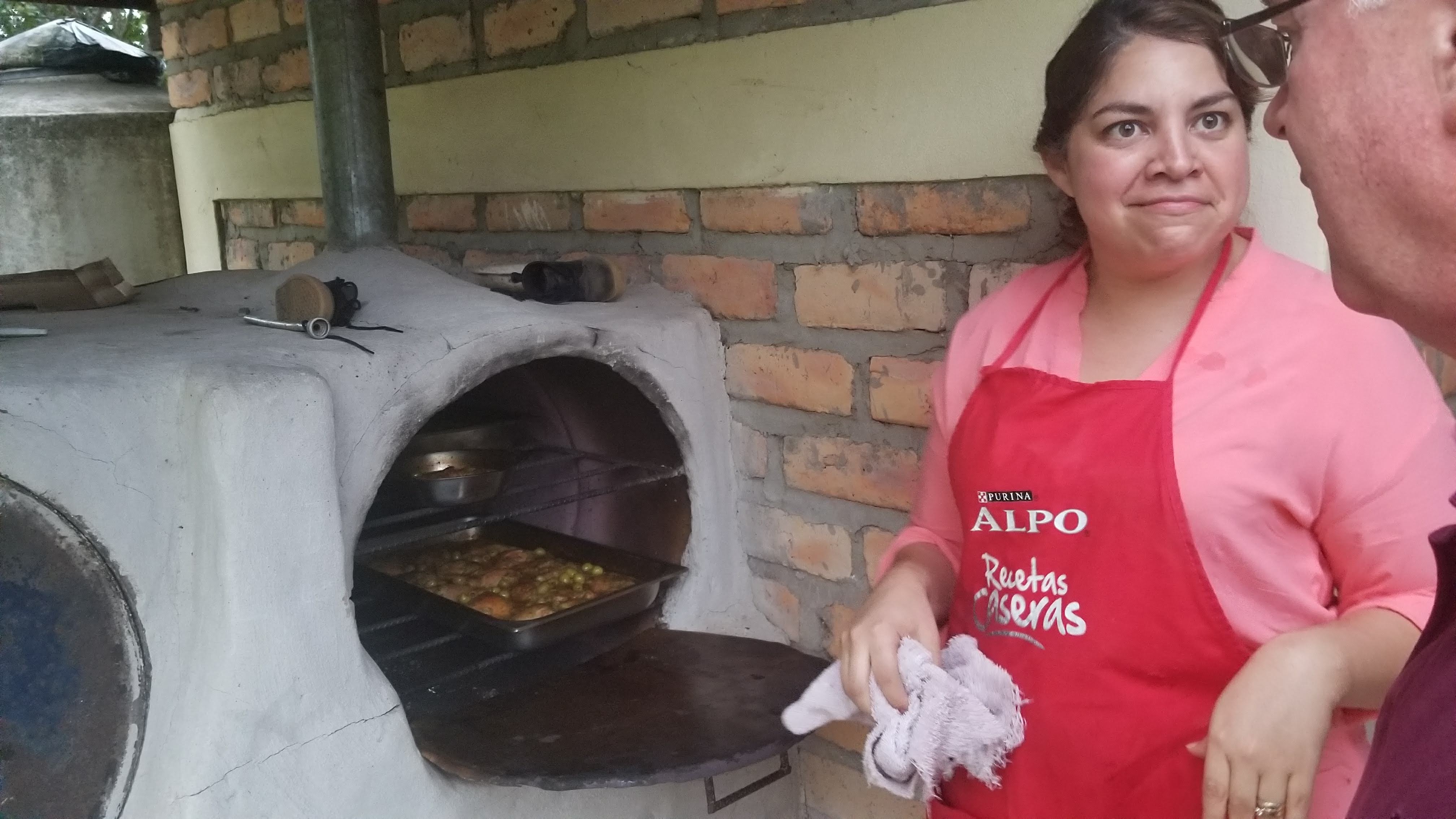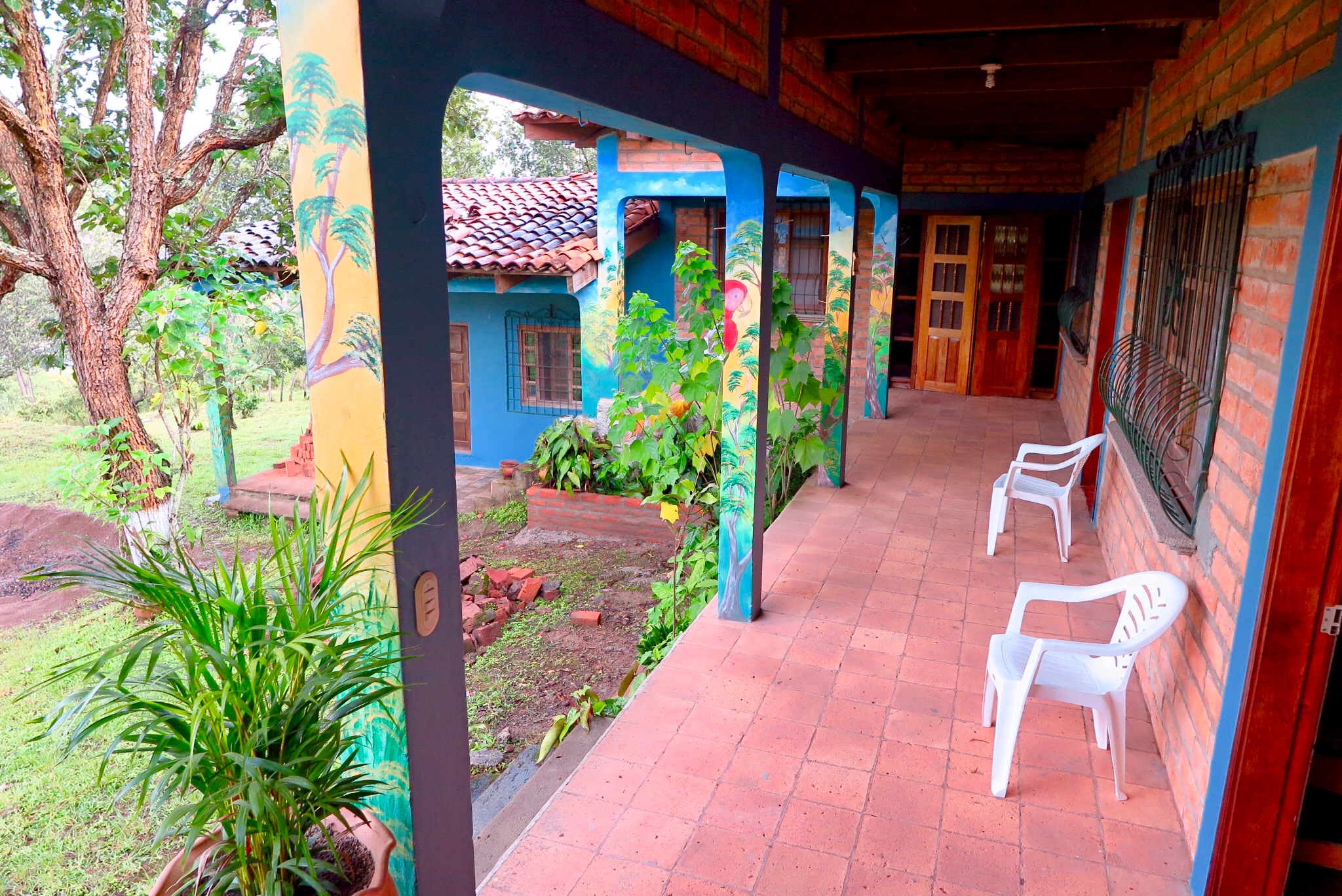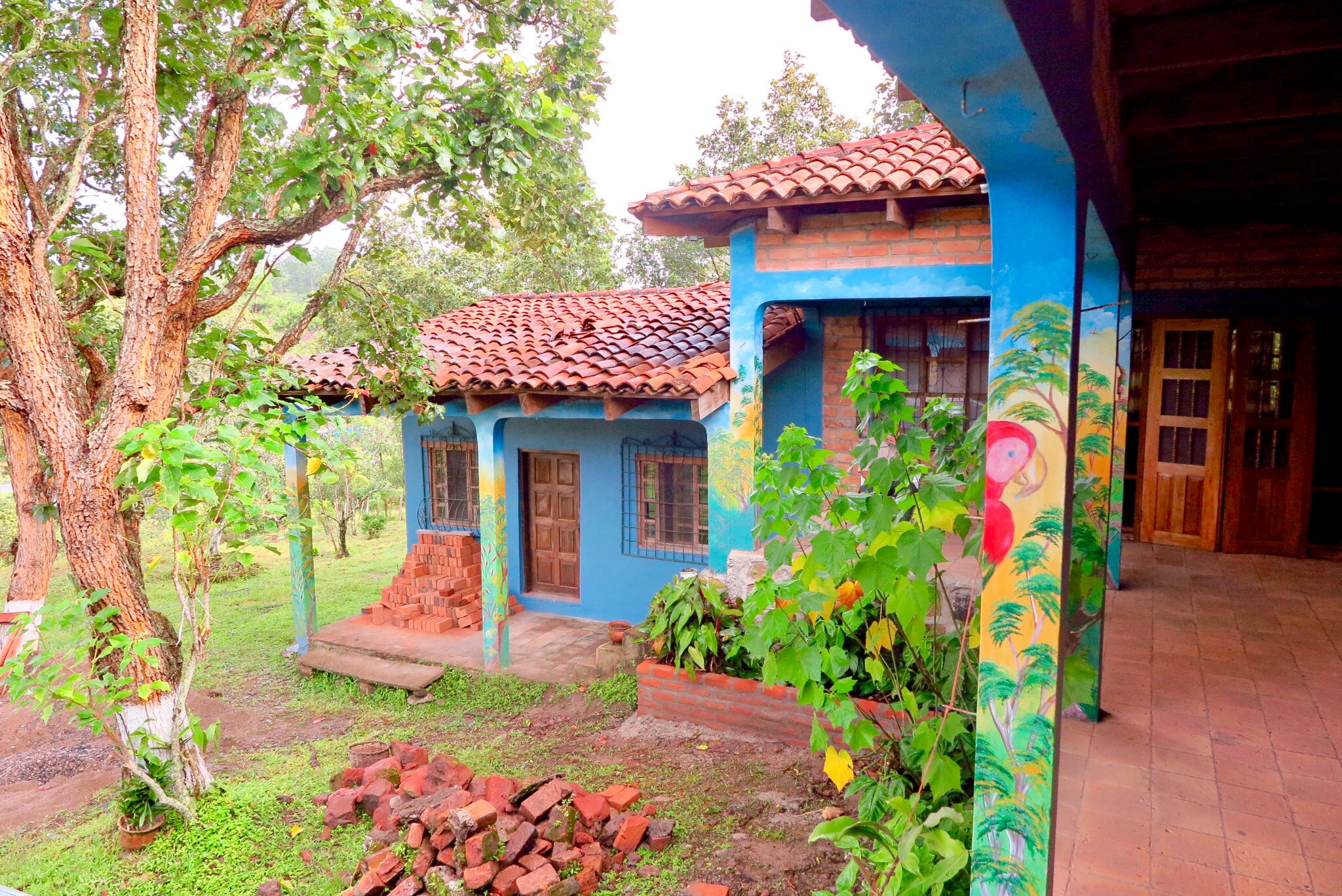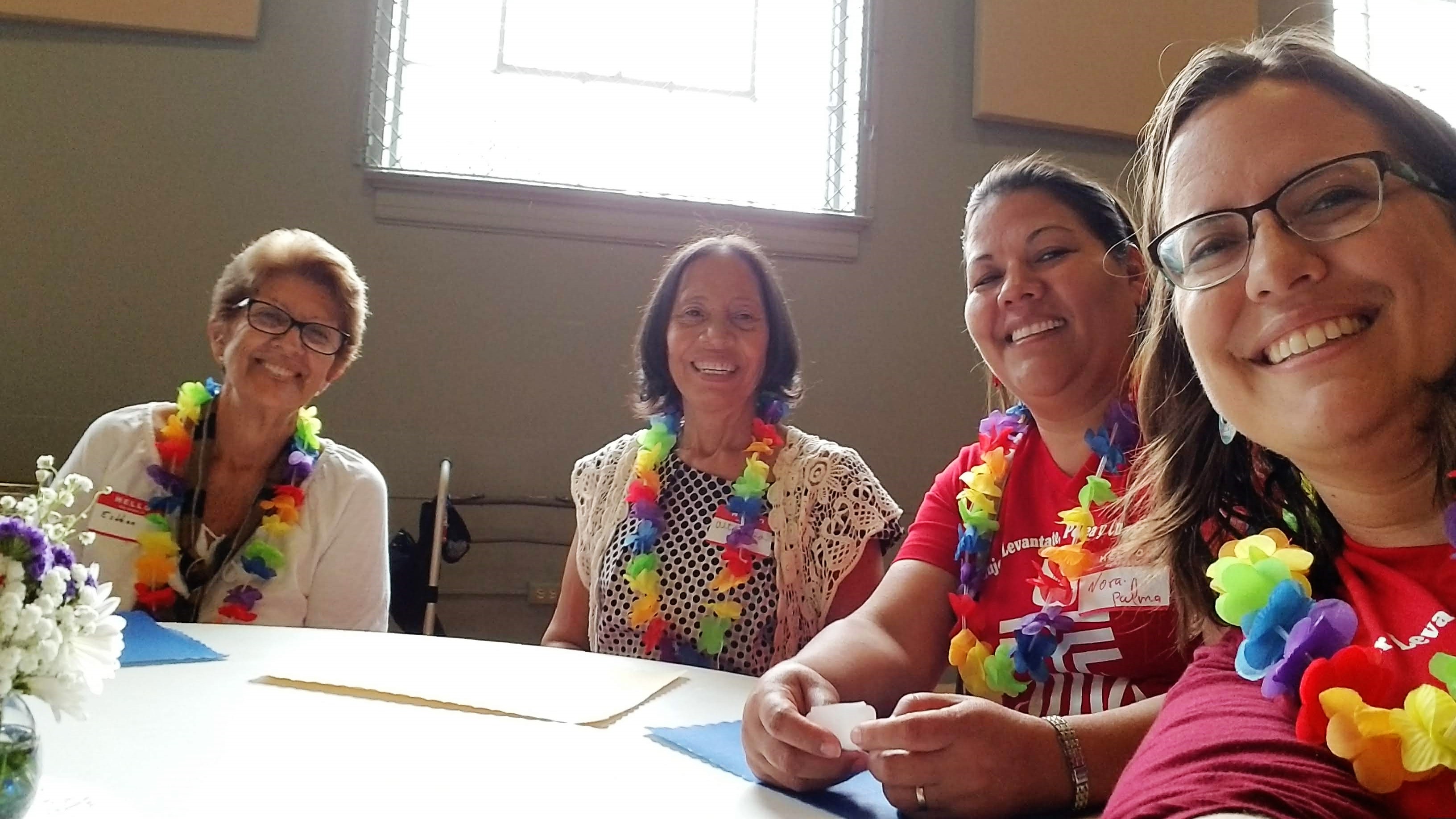A Letter from Dori Hjalmarson, serving in Honduras
October 2018
Write to Dori Hjalmarson
Individuals: Give online to E200535 for Dori Hjalmarson’s sending and support
Congregations: Give to D507592 for Dori Hjalmarson’s sending and support
Churches are asked to send donations through your congregation’s normal receiving site (this is usually your presbytery)
So Ananias went and entered the house. He laid his hands on Saul and said, “Brother Saul, the Lord Jesus, who appeared to you on your way here, has sent me so that you may regain your sight and be filled with the Holy Spirit.” ~Acts 9:17
So many new names I’ve heard directed my way in the past year. The professional ones: Reverend. Pastor. Missionary. Compañera.
Then there are the not-so-professional ones, mostly tossed at me by strangers: Mami. Sweetie. Honey. Gringa. Amor. Joven.
There are the friendly ones: My friend and colleague calls me Doriña. Her four-year-old nephew calls me Doyi. Nearly everyone else adds an S on my name: Doris. Something about the Hispanic tongue does that.
Names are important. They are nearly always the first thing established in a new relationship. They set the tone.
This summer, I attended the Presbyterian Women’s Churchwide Gathering in Louisville, and there I met several international partners from other Spanish-speaking countries. Like women across cultures and languages always seem to do, they quizzed me about why I am single and debated whether my 38-year-old body still has time to have children. One Dominican Presbyterian elder and Christian educator gave me a particularly hearty ribbing about how I’m never going to attract a partner if I don’t wear skirts that show my knees. Then, the other Spanish-speaking attendees and I sat for interviews with the group Mujeres Hispanas Latinas Presbiterianas (the Hispanic-Latina Presbyterian Women). The interviewer called me reverenda, which of course I am, but which isn’t normally how I introduce myself to new friends. My Dominican friend was horrified. She had been teasing a reverend for days about showing her knees to catch a husband! Why hadn’t I told her? Why hadn’t anyone else told her? She had been treating me just like any other sister of the church.
That’s the thing, I told her. I want to be treated like any other sister of the church. Sister has become my favorite new name. Hermana is the name that more than any other has caused me to settle into a new way of being.
It is how every church member addresses every other church member in settings formal and informal. Hermana Dori, I’m called, and I call others hermano and hermana, whether they are pastors or children. It strikes me as so warm and friendly, not only because it is a term of equality — that is, it describes a lateral relationship, not a hierarchical one — but also it is distinctly familial.
There are many differences between me and the Hondurans I work with in the Evangelical Presbyterian Mission of Honduras. Skin color doesn’t even break the surface. But every time I call a pastor I disagree with brother, I am reminding both of us that we are each a child of God and part of a family that is the body of Christ. Every time I hug and kiss each member of the classes that I teach, I call them brother or sister, and I remind myself and them that I have as much to learn as they do.
Ananias knew the power of the word brother. When he called Saul by this name, he transformed their relationship. Before Saul’s experience of Jesus Christ on the road to Damascus, Saul had been threatening to imprison and kill people just like Ananias. Laying hands on Saul, Ananias was laying hands on his enemy. And he called Saul brother. I wonder if this was not the cement in the conversion experience. Of course, the lightning bolt, divine voice, and sudden blindness had shocked Saul into submission. But the name brother: I believe that perhaps this was the true foundation of his new relationship, partnership, and mission.
By grace, through faith, we are all brothers and sisters in Jesus Christ. I continually thank God for all who listen and follow this mission, and for all who contribute to the precious work God does in Honduras. If you haven’t already, please consider making a financial contribution to help continue our partnership.
Your sister in Christ,
Dori
P.S. I want to update you on several projects that the Evangelical Presbyterian Mission of Honduras has undertaken in partnership with the Presbyterian Church (USA) this year:
Villa Gracia: The retreat center just outside of the capital city of Tegucigalpa has successfully come under the direction of the Presbyterian Women of Honduras, and we are less than $4,000 from our fundraising goal. The center was purchased in part with a grant from the Birthday Offering of the Presbyterian Women of the PC(USA). I accompanied Honduran PW Vice-Moderator Nora Palma to the Churchwide Gathering in Louisville, as well as to Northwest Arkansas and to Tampa Bay, Florida, to network and learn about ministry partnerships and other camp and conference centers in those places. What a whirlwind trip, and so fruitful! Nora and I returned feeling inspired and energized about the possibilities at Villa Gracia. Since March, the retreat center has hosted more than two dozen groups, about a third from the PC(USA), about a third from other denominations in Honduras, and about a third from inside the Honduras Presbyterian church. It has become a center of gathering, of learning, and of women’s leadership. The Honduras Mission Network continues to raise funds to complete the purchase of the property and make needed renovations and upgrades, such as plumbing and furniture. If you would like to support this effort, please contact David Gill of Ferncliff Camp and Conference Center in Little Rock, Arkansas: ferncliff@gmail.com.
Heart surgery for a pastor’s son: Eduar López is the 12-year-old son of rural lay pastor Fidel López. Eduar suffers from a congenital heart defect that developed into a life-threatening condition and required surgery. After a fundraising effort by U.S. and Honduran Presbyterian churches, Eduar’s surgery was completed successfully on Oct. 4. The operation was performed by the only pediatric cardiac surgeon currently working in Honduras. His team has been operating for only two years, he told us after the surgery. Eduar’s parents and friends are overjoyed, relieved, and singing God’s praises. Eduar is a bright and sweet boy who loves to draw, help his family serve the church, and play soccer. Now he will be able to sing in church and play with his little sister without becoming short of breath and risking heart failure.
Presbyterian pastors in Honduras are not paid a salary. They nearly all support their families with non-church jobs. Economic need is one of the major stressors on pastors and one of the main reasons many consider leaving their ministries. The López family’s medical bills were paid by a pastoral emergency fund set up to help alleviate some of these economic stressors and enable pastors to stay in the ministry. If you would like to have more information about Eduar’s progress, or to know about continuing needs and concerns for the family and community, please contact me: dori.hjalmarson@pcusa.org.
Please read this important message from José Luis Casal, Director, Presbyterian World Mission
Dear partners in God’s mission,
We near the close of 2018 inspired by the hope of Christ. God is transforming the world, and you are helping to make it happen.
Thank you very much for your support of our mission co-workers. The prayers and financial gifts of people like you enable them to work alongside global partners to address poverty, hopelessness, violence and other pressing problems in the name of Jesus Christ.
Every day, Presbyterian Church (U.S.A.) mission co-workers are blessed to be able to walk alongside their brothers and sisters across the globe. Listening to each other in faith and in friendship, they learn from each other how to work towards a world in which everyone flourishes. Acting upon what they discover together, PC(USA) mission co-workers and our global partners strengthen the body of Christ.
Because you are an integral part of God’s mission, I invite you to become more deeply committed to Presbyterian World Mission. First, would you make a year-end gift for the sending and support of our mission co-workers? The needs in the world are great, and World Mission is poised to answer God’s call to serve others.
I also invite you to ask your session to add our mission co-workers to your congregation’s prayer list and mission budget for 2019 and beyond. Your multi-year commitment will make a great difference in our involvement with our partners. The majority of our mission co-workers’ funding comes from the special gifts of individuals and congregations like yours, for God’s mission is a responsibility of the whole church, not a particular area of the church. Now more than ever, we need your financial support!
In faith, our mission co-workers accept a call to mission service. In faith, World Mission, representing the whole church and you, sends them to work with our global partners. In faith, will you also commit to support this work with your prayers and financial gifts? With hope and faith, I await your positive response!
At God’s service and at your service!
José Luis Casal
Director
P.S. Your gift will help meet critical needs of our global partners. Thank you!
![]() You may freely reuse and distribute this article in its entirety for non-commercial purposes in any medium. Please include author attribution, photography credits, and a link to the original article. This work is licensed under a Creative Commons Attribution-NonCommercial-NoDeratives 4.0 International License.
You may freely reuse and distribute this article in its entirety for non-commercial purposes in any medium. Please include author attribution, photography credits, and a link to the original article. This work is licensed under a Creative Commons Attribution-NonCommercial-NoDeratives 4.0 International License.
